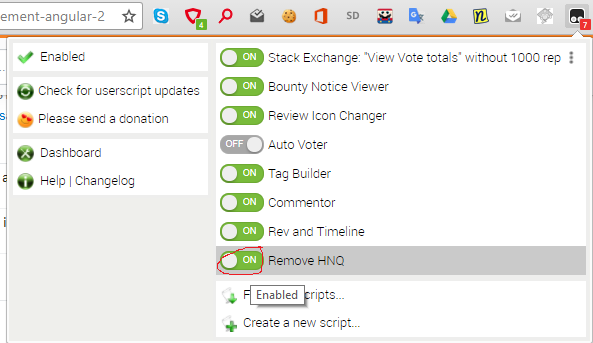As far as I know, there is no method that allows you to turn of it.
But you can try it with a User Script.
Since you said that you are using Stack Overflow only, I am posting a User Script that works only for Stack Overflow
// ==UserScript==
// @name Remove HNQ
// @namespace https://sagarvd01.github.io/
// @version 1
// @description Remove the HNQ part from the Stack Exchange sites
// @author Sagar V
// @match https://stackoverflow.com/*
// @run-at document-end
// @grant none
// ==/UserScript==
(function() {
'use strict';
$('#hot-network-questions').remove();
})();
You need a browser that support userscript and some plugin like Tapermonkey or greasemonkey to run userscripts.
The above userscript will remove the HNQ section when the page loaded.
You can enable HNQ by disabling this userscript.
If you want to enable this in other network sites too,
add the param
// @match https://*.stackexchange.com/*
// @match https://*.serverfault.com/*
// @match https://*.superuser.com/*
// @match https://*.askubuntu.com/*
add the full custom domains (with wildcards, so meta sites are included, too)


